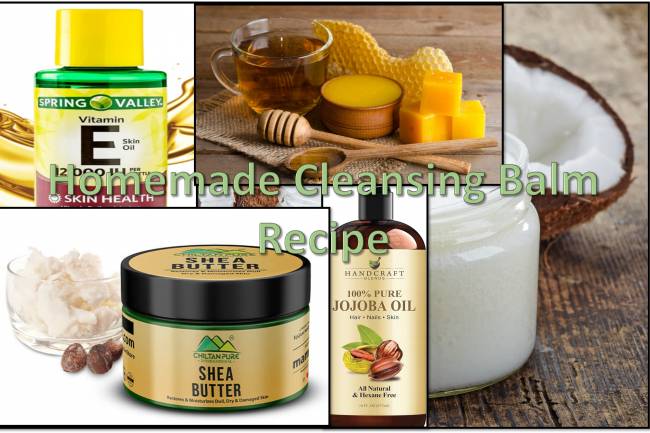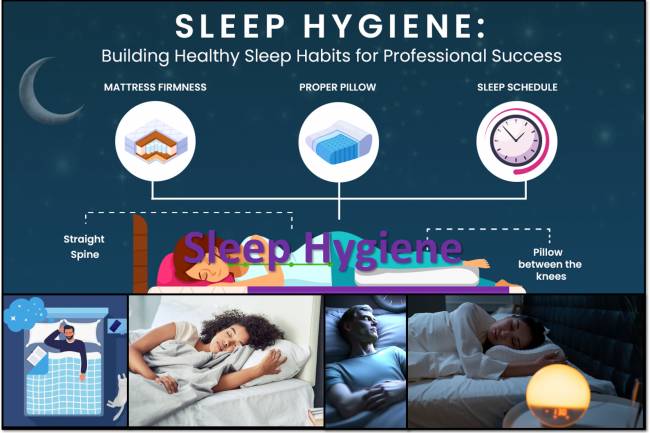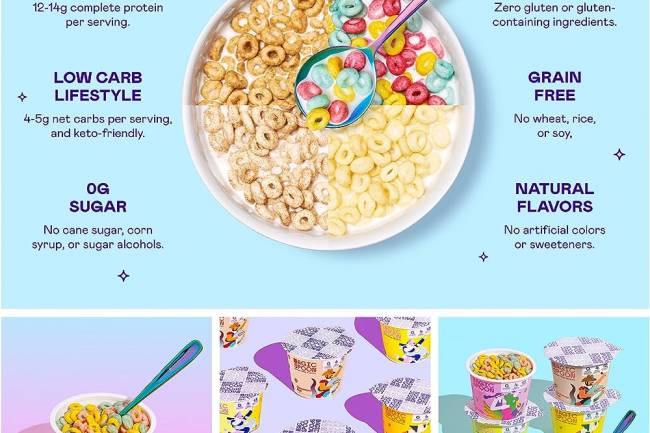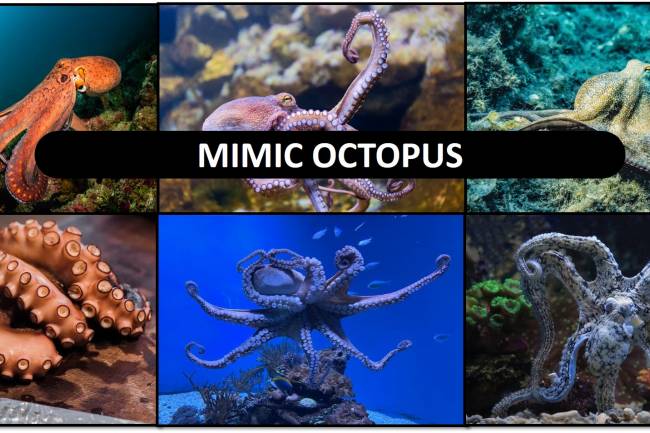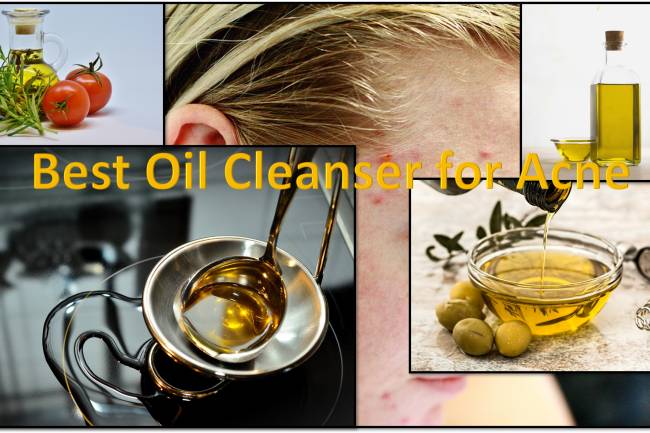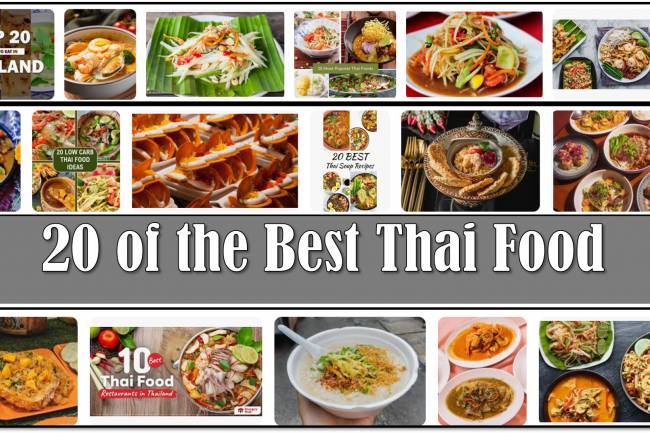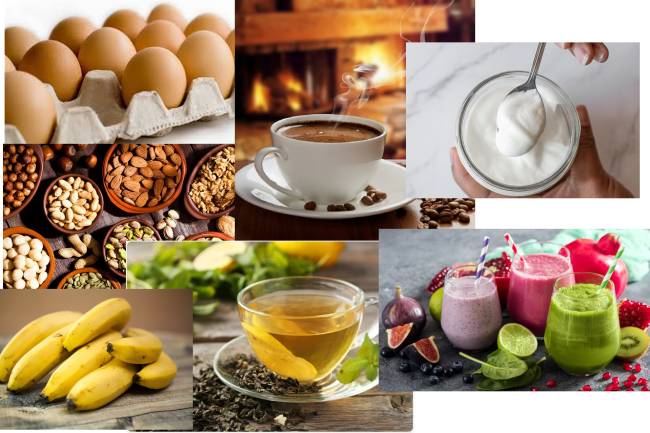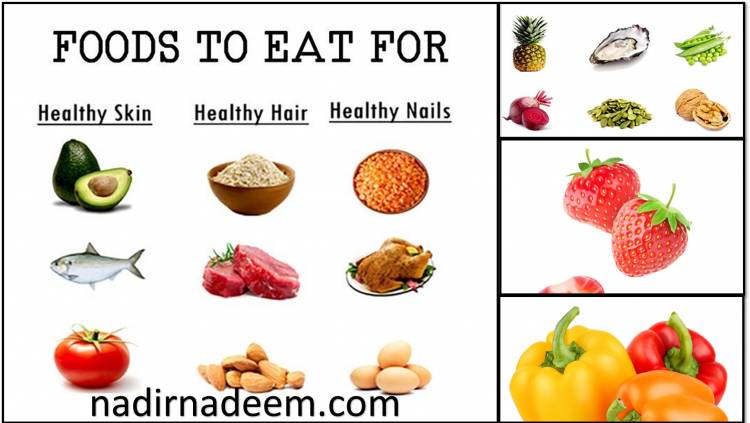
foods that can naturally boost for health.
foods that can naturally boost the health
There are several foods that can naturally boost the health of your skin, hair, and nails due to their nutrient content. Here are some examples:
Table of Contents
Salmon(Fish):
Rich in omega-3 fatty acids, which help to keep your skin moisturized and may reduce inflammation. Additionally, salmon provides protein and vitamin D, which are important for hair and nail health.
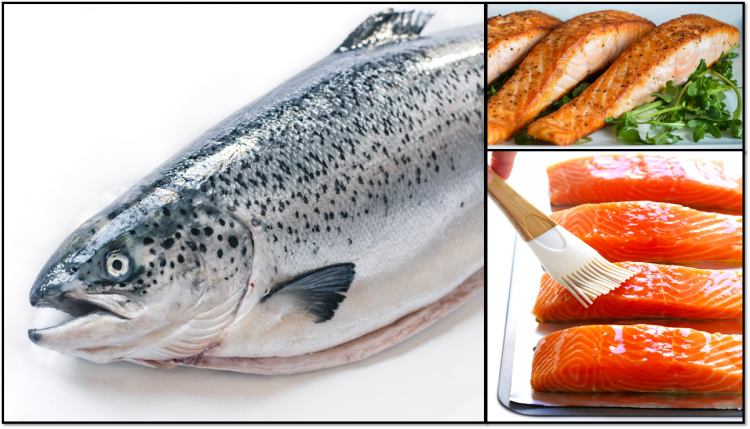
Here are 10 benefits of salmon:
Nutritious:
- Salmon is an excellent source of many essential nutrients, including protein, omega-3 fatty acids, B vitamins (niacin and vitamin B12), selenium, potassium, magnesium and phosphorus. Just one serving of salmon can provide you with enough of the daily recommended amount of these vitamins and minerals.
Salmon image opens in a new window.
wikipedia.org
Salmon fish
Excellent source of Omega-3:
- Salmon is particularly rich in Omega-3 fatty acids, especially EPA and DHA. These vital fats are significant for heart health, brain purpose and dropping irritation. Studies show that getting these omega-3 fats from fish increases your body's metabolism even more effectively than supplementing with fish oil capsules.
Omega3 image opens in a new window.
walmart.com
Omega 3
May protect brain health:
- Omega-3 fatty acids have been shown to play a role in protecting brain health. Studies show that high amounts of omega-3s in fish, such as salmon, can help reduce the risk of dementia and Alzheimer's disease, and improve memory and cognitive function.
Image of Brain Opens in a new window
www.hopkinsmedicine.org
the brain
May improve eye health:
- Omega-3s are also essential for eye health. They can help protect against age-related macular degeneration (AMD), a leading cause of vision loss in older adults.
Image opens in a new window
www.britannica.com
the eye
Good source of vitamin D:
- Salmon is a good source of vitamin D, which is essential for bone health, immune function and cell growth. Vitamin D deficiency is a common problem, and salmon can be a great way to increase your intake.
Vitamin Dopines image in a new window
amazon.com
Vitamin D
May reduce inflammation:
- Chronic inflammation is a major contributor to many diseases, including heart disease, cancer, and autoimmune diseases. The omega-3 fatty acids and other nutrients in salmon can help reduce inflammation throughout the body.
Inflammation image opens in a new window.
verywellhealth.com
inflammation
May help maintain a healthy weight:
- Salmon is a high-protein, low-calorie food that can help you feel full and satisfied. It can be helpful for weight management.
Source of Astaxanthin:
- Salmon contains astaxanthin, a carotenoid pigment that gives salmon its pink color. Astaxanthin has antioxidant and anti-inflammatory properties and may offer additional health benefits.
Astaxanthin image opens in a new window.
amazon.com
Astaxanthin
May reduce the risk of depression:
- Studies show that people who eat fish regularly are less likely to develop depression. The omega-3 fatty acids in salmon may play a role in mood regulation.
Versatile and delicious:
- Salmon is a versatile and delicious fish that can be prepared in a variety of ways. It can be baked, grilled, poached or smoked.
Salmon is a nutritious and delicious fish that can be an excellent addition to a healthy diet. Count salmon to your food can help recover your general health and well-being.
Disadvantages of salmon:
Although salmon is a nutritious food, there are some potential downsides to consider:
Contaminants in farmed salmon:
- Farmed salmon can have higher levels of contaminants like PCBs and mercury than wild salmon. This is because they are fed fish meat that can concentrate these pollutants. Choosing wild-caught salmon or limiting consumption of farmed varieties can help reduce this risk.
Antibiotics in farmed salmon:
- Some salmon farms use antibiotics to prevent disease in overcrowded fish cages. This can contribute to antibiotic resistance, a serious public health threat.
Environmental Impacts of Salmon Farming:
- Large-scale salmon farming can have negative environmental impacts, such as pollution from excess waste and the escape of farmed fish that can interfere with wild populations.
Mercury:
- Even wild salmon contains some mercury, a heavy metal that can be toxic in high doses. However, salmon levels are generally considered safe in moderation for most people. Pregnant women and young children should be especially mindful of their mercury intake and may want to limit their consumption of certain fish.
Price:
- Wild-caught salmon can be more expensive than other types of fish or seafood.
Overall, the health benefits of salmon outweigh the risks for most people. However, it's important to be aware of these potential downsides and choose sustainably sourced salmon whenever possible.
Avocado:
Loaded with healthy fats, vitamins E and C, and biotin, avocados can help to hydrate your skin and promote a healthy complexion. Biotin is also essential for strong nails.
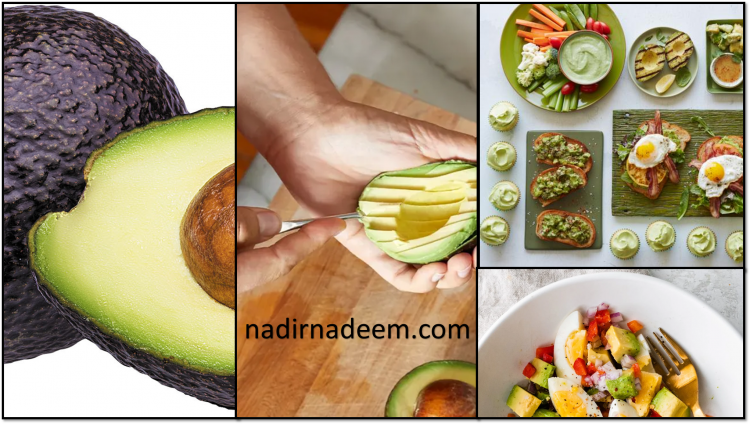
Sweet Potatoes:
High in beta-carotene, which your body converts to vitamin A, sweet potatoes can contribute to a healthy skin tone. Vitamin A is also important for cell production and repair, which can benefit both hair and nails.

Almonds:
A good source of vitamin E, almonds help protect your skin from sun damage and keep it looking youthful. They also contain biotin and other nutrients that support healthy hair and nails.
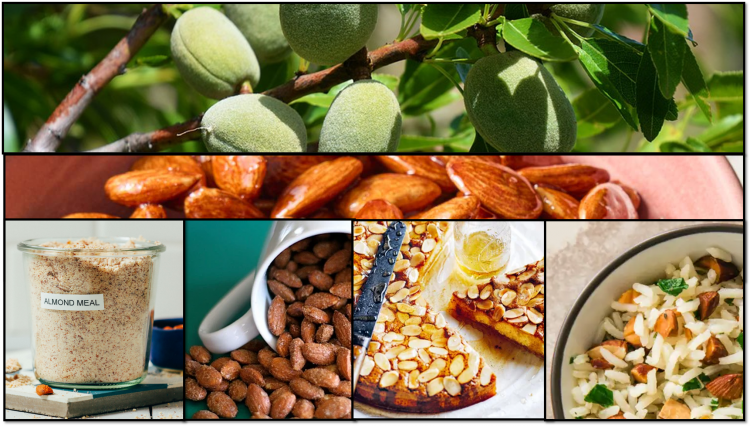
Spinach:
Packed with antioxidants like vitamin C and beta-carotene, as well as iron and folate, spinach can help to fight skin aging and support healthy hair growth. Iron deficiency can lead to hair loss, so ensuring an adequate intake is important.
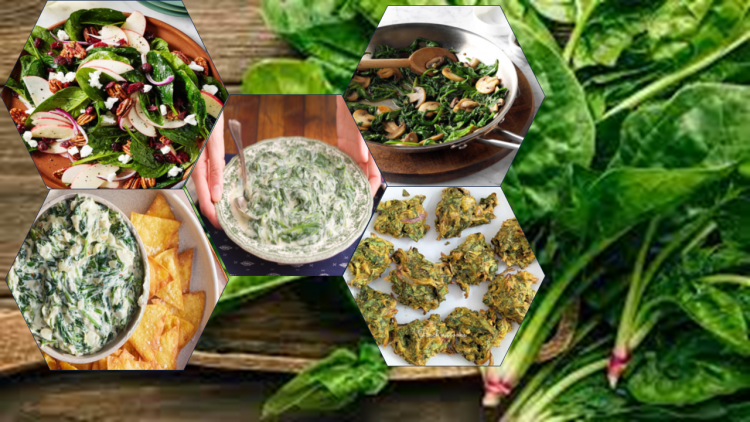
Greek Yogurt:
Rich in protein and probiotics, Greek yogurt supports gut health, which is linked to skin health. The protein content also provides amino acids necessary for hair and nail growth.
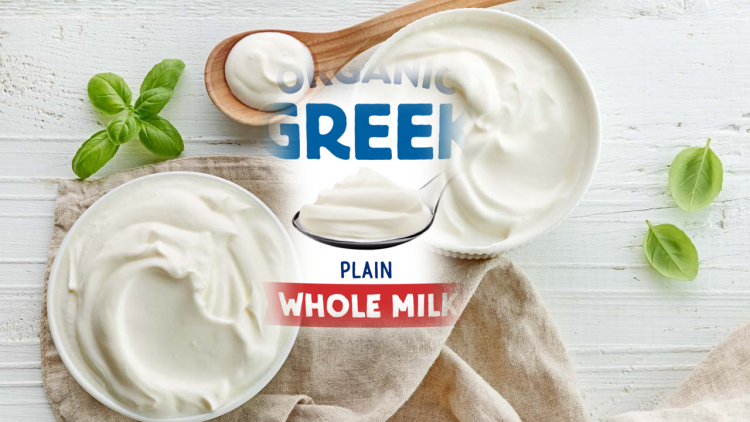
Berries:
Blueberries, strawberries, and other berries are rich in antioxidants, which help to protect your skin from damage caused by free radicals. They also contain vitamin C, which is important for collagen production and skin elasticity.
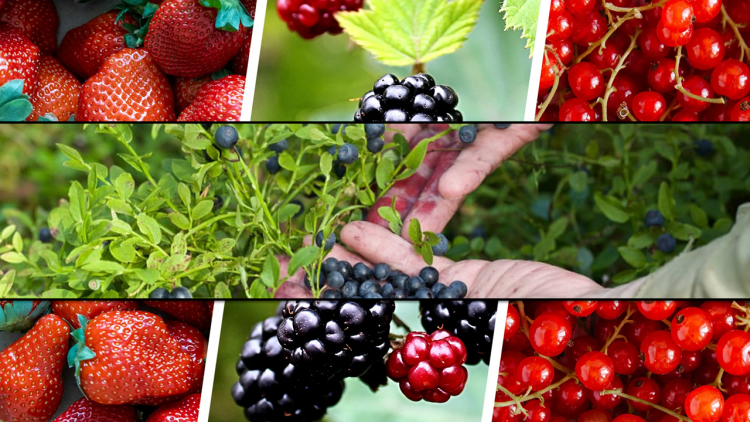
Eggs:
A great source of protein and biotin, eggs can promote healthy hair and nails. They also contain zinc, selenium, and other minerals that support overall skin health.
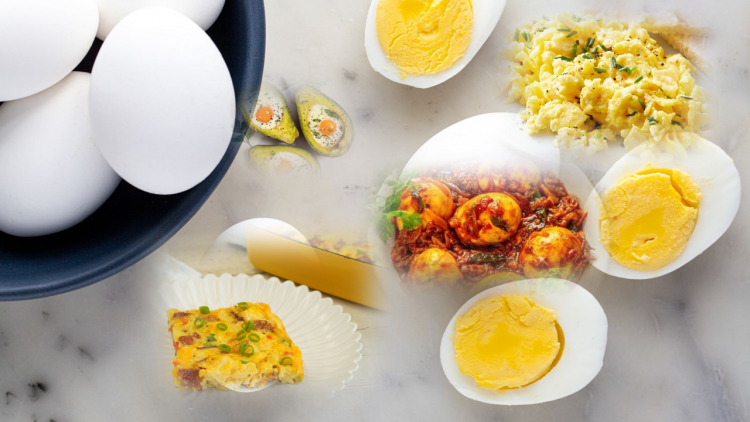
Bell Peppers:
High in vitamin C, bell peppers help to promote collagen production, which can improve skin firmness and elasticity. They also contain beta-carotene and vitamin E, which are beneficial for skin health.
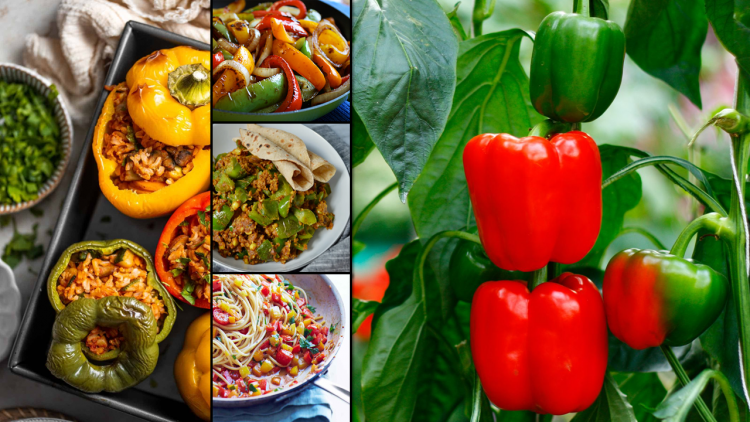
Oysters:
Loaded with zinc, oysters support skin cell renewal and repair. Zinc deficiency can lead to hair loss and brittle nails, so incorporating zinc-rich foods like oysters into your diet can be beneficial.
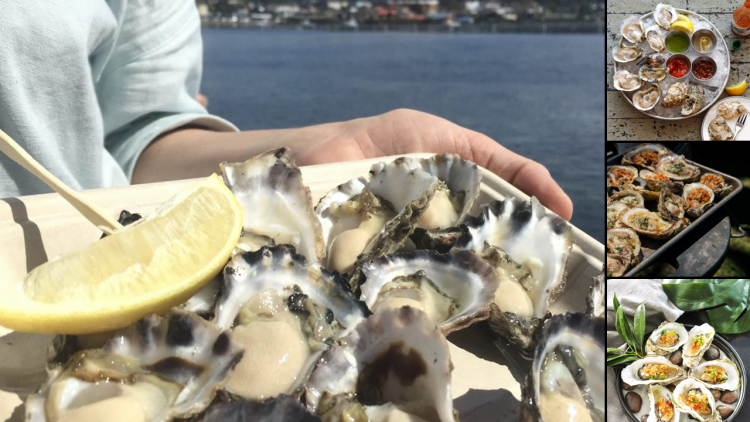
Incorporating a variety of these nutrient-rich foods into your diet can help to improve the health of your skin, hair, and nails over time. Additionally, staying hydrated and avoiding excessive alcohol and processed foods can further support overall wellness.

